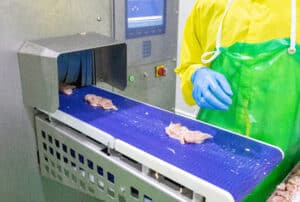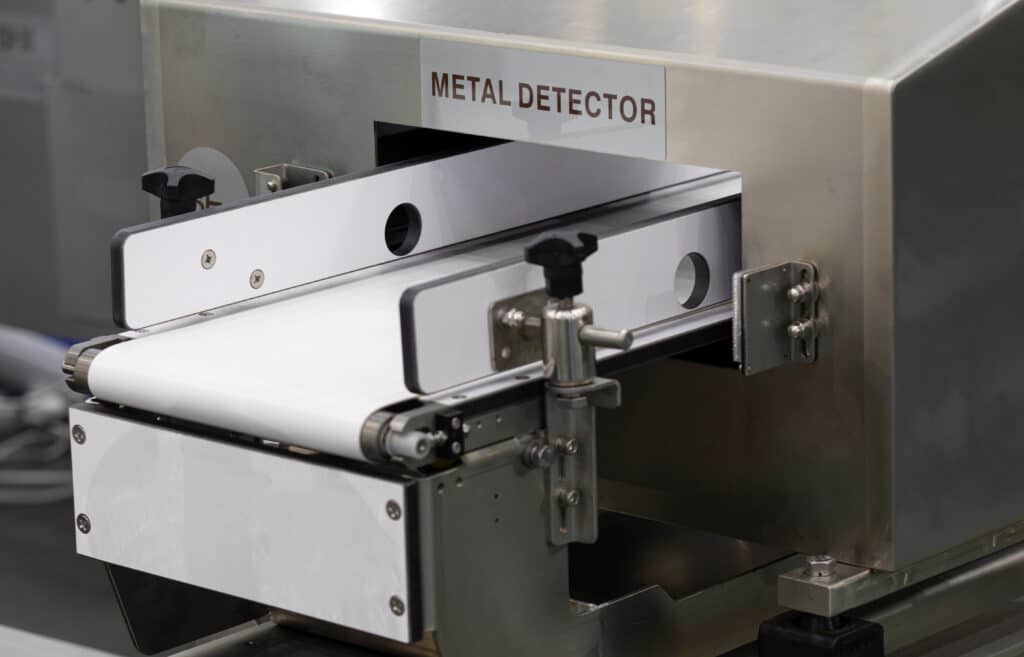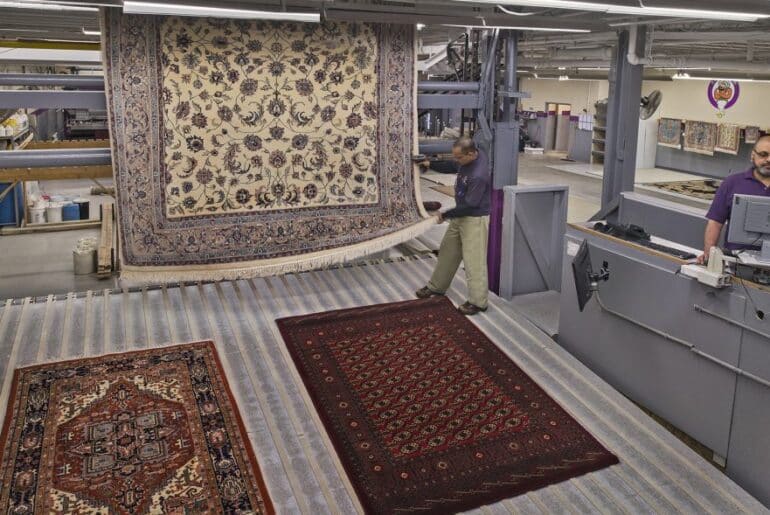Many industries in charge of producing food and beverages invest in equipment to ensure their products come out free of contaminants that could harm consumers. One such piece of equipment is a food metal detector, which catches bits of metal hiding in perishable goods to be removed.
Frighteningly, metal is one of the top contaminants commonly found in food and other related products. Modern food production methods can introduce various metals in their processes, which could pose dangers if not dealt with before releasing such products into the market. This is the reason why food metal detectors are essential. But, as with all types of mechanical equipment, you can’t simply rush in and install one without prior knowledge.
Here’s what you should know before getting or using a food metal detector for your business:
1. It’s Not Always Perfect
Like any artificial contraption, food metal detectors have their flaws, too. No matter how many test runs one had, there’s bound to be a slight anomaly to happen eventually. Fortunately, if the detector malfunctions, you can check out tips on troubleshooting a food metal detector or look for a reputable repair service specializing in industrial equipment.
It’s also important to note that food metal detectors may also react to false triggers, resulting in rejected products even if they should be clear of contaminants. These false readings are costly, both in time and resources.
Factors that can influence results include:
- Mineral-rich food
- Food with high moisture content
- Temperature of the food or facility
- Electromagnetic fields created by nearby equipment
- Electricity fluctuations
- Abrupt temperature changes
- Physical vibrations from the detector itself
Hence, you can expect inconsistencies to arise in production. In order to avoid malfunctions and extend the life of your food metal detectors, you must perform regular maintenance checks. When you get your first or new detector, ensure it’s been installed correctly to avoid sudden errors early in use. It’s also wise to keep spare parts close if your food metal detectors lose or break their original pieces. That way, you’ll lessen downtime.
2. Types Of Contaminants
Food and packaging may contain various minerals that are detectable by your equipment. Generally, these minerals are safe to consume as they manifest naturally in the products. But, other times, the food may carry metal contaminants that shouldn’t be there.
There are the three main types of metals a food metal detector should be able to spot:
- Ferrous: Also known as mild steel or cast iron, it’s the easiest for metal detectors to identify because of its high magnetic properties.
- Non-ferrous: Copper, aluminum, and lead are under this type of metal. They’re not magnetic since they lack iron. Despite that, they’re conductive materials and produce electromagnetic resonances, making it easy to detect them.
- Stainless steel: Despite containing iron, stainless steel isn’t magnetic like ferrous metals. It’s also not conductive, unlike non-ferrous metal, which makes it challenging for some detectors to point out. A product’s high moisture or salt content may also hinder the detection of this metal.
Another type of contaminant often found in food products is non-metal. This includes bone, glass, and stone. While a food metal detector can’t identify these materials, X-ray inspection equipment should do the job. Just like drinking and bathing water need to go through water filters first, the food you produce must undergo multiple processes to ensure it’s safe for consumption.
3. Types Of Detectors

There are different kinds of food metal detectors, and they also come in various configurations. Thus, you must choose one that’s best for your particular food business.
The most common type of food metal detector is the conveyor system. Many food businesses utilize this because of its size availability, sensors, and belt layouts. Conveyor types quickly reject products with contaminants via devices like a retractable belt, air blast, or kicker.
However, you may see other kinds of detectors in food businesses, too, such as:
- Free-fall system detectors: They’re also known as gravity feed systems, and they’re perfect for dry food products, like powders, spices, and seeds. The detector can instantly identify and separate contaminants through a rejection gate so they don’t mix with the food in the production line. This type is also more compact than the others on this list.
- Pipeline system detectors: Food products that are pumped out often go through this detector type. Businesses that produce beverages and sauces may use this to detect and remove contaminants from the mixtures. The products pass through the system, which will scan them and cut off flow when it identifies foreign materials. A rejection valve will then transport the detected contaminants.
- Bulk product detectors: Food businesses that process large amounts of food products as heavy as 100 lbs. use this type. Bulk product detectors can even be integrated with conveyor systems.
4. Where To Install One
Where you position the equipment in the production line will affect the products you make. Since contaminants may enter the food products at any place and time during the process, the best place to install the detector is at the end of the line. Metal detection being the final step ensures your products come out contaminant-free.
However, food safety experts also recommend adding one at the beginning of the production line. They explain that it’s a way for food business owners to inspect where the contaminants come from and how they enter the products. For example, if the product passes the first check but fails the second, the supervisor can deduce that the raw food enters the production chain clean, but gets contaminated midway.
By installing your food metal detector in the best positions possible, you’re less likely to produce products that don’t pass your government’s food standards. In the food industry, especially, there are risks of lead or mercury poisoning if consumables aren’t appropriately screened. Thus, maintaining safety in food processing businesses is essential to protect your customers and production team.
Conclusion
Food safety is crucial in keeping a business that produces food. There may be hefty fines for the company if proven their products contain a significant amount of metal contaminants as these objects may harm the person who eats them.
As a food business owner, you’re responsible for investing in and maintaining the upkeep of your facility’s equipment, especially that of your food metal detectors. As long as you know where to put the detector, the elements it can detect, and how to take care of it, you’ll have an indispensable tool in your business that could help you save and earn more.
Please note: CharlieTrotters.com is reader supported. This page may contain affiliate links. If you buy a product or service through such a link we earn a commission at no additional cost to you.







